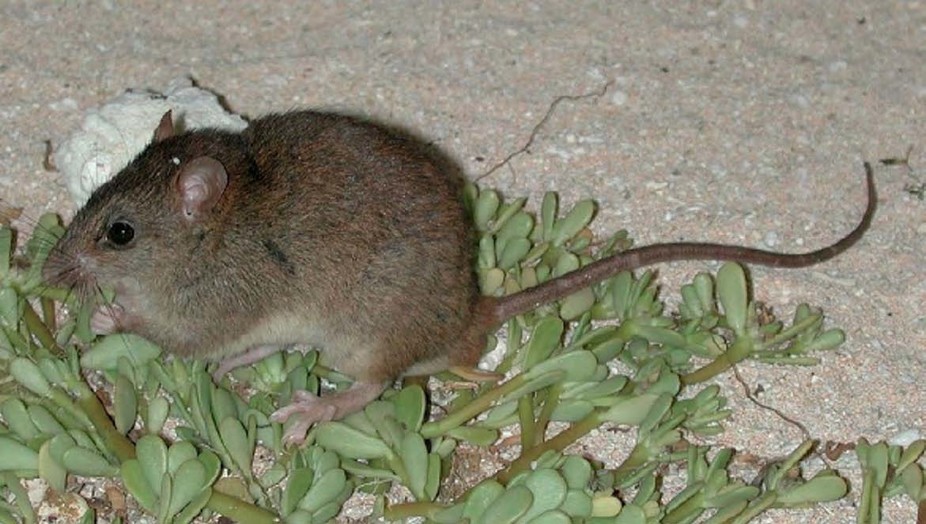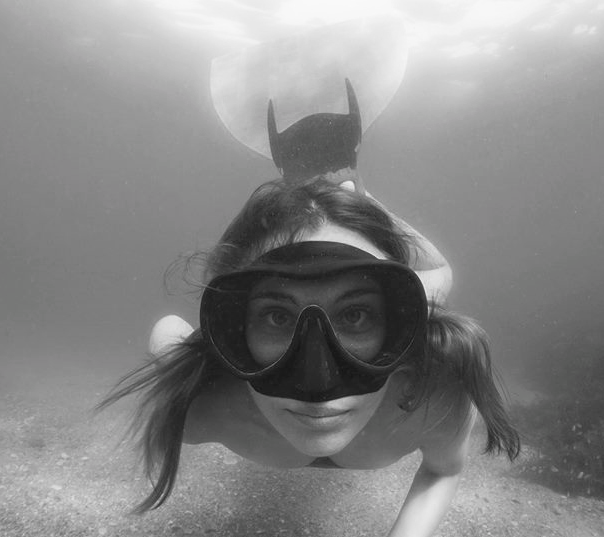Can you cut 1 Tonne of carbon pollution out of your life?
Take the challengeUntil recently, the devastating impacts of climate change in Queensland have been most obvious on the Great Barrier Reef. While there are still glimmers of hope shining bright when it comes to saving the Reef, we sadly can't say the same for a tiny species of rodent endemic to an island off the Queensland coast. The 'Bramble Cay melomy' has disappeared for good, and "represents the first recorded mammalian extinction due to anthropogenic climate change".
The first time a mammal has been declared extinct due to the impacts of climate change
The melomys have been officially confirmed extinct, with human-induced climate change being cited as the main cause. It is a peek of what is expected to come if we don't act on climate change.
After failing to locate the melomys in March 2014, a team of researchers from the University of Queensland and Queensland's Department of Environment and Heritage Protection returned to Bramble Cay to establish if the rodents could still be found. Exhaustive efforts, including setting over 900 traps, confirmed that the Great Barrier Reef's only endemic mammal had become extinct.

Image: Queensland Government
Sea level rise
Bramble Cay measures a mere 340 metres across and 150 metres wide. At only 3 metres above sea level, the cay is particularly vulnerable to rising sea levels and bouts of extreme weather. Frequent inundation of the tiny island over the past ten years resulted in destruction of the melomys habitat, and the death of individuals of the population.
In their report, Researchers Ian Gynther, Natalie Walker, and Luke Leung weren't vague about the cause of the continuous flooding of Brambles Cay, stating human-induced climate change as the "root cause" of the loss of these mammals. Sea levels worldwide have risen by almost 20 cm but around the Torres Strait, where Bramble Cay lies, this figure is almost double. It was this rise in water levels, combined with "increased frequency and intensity of weather events producing extreme high water levels and damaging storm surges in the Torres Strait region" that resulted in the extinction of an entire species of Australian mammal.
Ecologist John White who was involved in the study of the Brambles Cay meloyms warns, "this extinction is just the tip of the iceberg".
“I am of absolutely no doubt we will lose species due to the increasing pressures being exerted by climate change. Species restricted to small, low lying islands, or those with very tight environmental requirements are likely to be the first to go”- John White
Species around the world
As ecosystems globally begin to transform thanks to the effects of a warming planet, scientists are predicting that between 20 – 50 % of all the species on Earth will become extinct. More than a year ago a report warned that one in six species could go extinct if we don't act on climate change, in what will be the world's sixth mass extinction.
Read more: Humans Have Wiped Out Half Of All Animal Species In The Last 40 Years
The disappearance of Bramble Cay meloym is a sobering reminder of the threats wildlife globally face in a climate that is rapidly changing. Australia is home to numerous species that can't be found anywhere else. Likewise with South America and New Zealand. The Lumholtz Tree Kangaroo can only be found in the wet tropics of North Queensland. As temperatures continue to soar and rainfall lowers their suitable habitat will be reduced.
It's not only the more obvious effects of climate change, such as rising sea levels and warming temperatures that will impact wildlife. In the case of Lumholtz Tree Kangaroo, increasing carbon dioxide levels may reduce the nitrogen content of the leaves it consumes, making their diet less nutritious. More frequent occurrences of extreme weather, such as bushfires and flooding will contribute to the destruction of animal populations and their habitat.

Marine species are also facing the full force of climate change, as is evident from the recent coral bleaching on the Great Barrier Reef. The Reef is home to 6 of the 7 species of sea turtle. These reptiles have been swimming through oceans worldwide for millions of years, and have coped with climatic changes during this time. But it is the rate at which the climate is accelerating that will curb them from adapting.
The extinction of the Bramble Cay meloym is heartbreaking. Not only because it's the first mammal extinction caused by human-induced climate change, but because it won't be the last. It is a stark reminder that to protect wildlife globally, we need to act on climate change now.
Three ways you can help wildlife threatened by climate change
1. Speak on behalf of species that can't speak for themselves by signing our open letter to all political candidates asking for urgent and sustained action on climate change and the protection of the Great Barrier Reef.
2. Make your home wildlife friendly and provide habitat for animals in your own backyard.
3. Join 1 Million Women and track how much carbon pollution you save from changing small habits!

